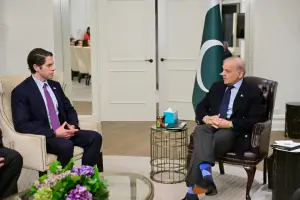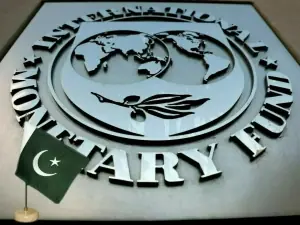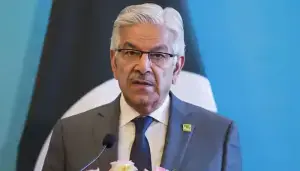Supreme Court accepts Mustafa Kamal, Faisal Vawda’s apology in contempt case
3 min readThe Supreme Court of Pakistan has accepted the statements of apology from MQM Pakistan leader Mustafa Kamal and Senator Faisal Vawda in contempt of court case and has withdrawn the contempt notices against them.
Chief Justice Qazi Faez Isa remarked that the matter has been settled, and they will not pursue it further, stating that this nation needs both the parliament and the judiciary.
A 3-member bench of the Supreme Court, led by Chief Justice Qazi Faez Isa, heard the contempt of court case against Vawdaand Kamal, who appeared in person. The hearing was broadcasted live on the Supreme Court’s website.
At the start of the hearing, Kamal’s lawyer Barrister Farogh Naseem argued that Kamal had already sought an unconditional apology, and had also expressed regret in a press conference.
The Chief Justice questioned Faisal Vawda and his lawyer about the lack of written responses from media organizations and the absence of Vawda’s lawyer.
Vawda explained that no show-cause notices had been issued to the media, and his lawyer clarified that he had submitted a written response.
However, the Chief Justice noted that the response submitted bore the lawyer’s signature, not the channels’ signatures, as is required in a contempt of court case.
Vawda explained that if show-cause notices had been issued, the responses would have been submitted with the channels’ signatures.
The Chief Justice then engaged Vawda’s lawyer about being a supporter of the Constitution and questioned whether it was appropriate for the media to claim they were only reporting while someone called someone “a thief and dacoit” and whether such “freedom of the media” should be allowed.
The top judge said that freedom of the press and freedom of expression are two separate concepts.
Siddiqui stated that the definition of freedom of the press has been debated for 200 years.
The Chief Justice interjected, questioning why Siddiqui did not start from 1400 years ago, implying that the lawyer did not prefer the Islamic perspective.
Siddiqui explained that he referred to 200 years because that is when modern constitutions emerged. The Chief Justice then directed Siddiqui to read the preamble of the Constitution.
The Chief Justice questioned the lawyer, Faisal Siddiqui, about where it is written in the law that TV channels had to only air live press conferences for the sake of money, rather than for matters of faith, intention, ethics and civility. The Chief Justice also noted that there was no instance of a press conference being cut off due to a mistake being made.
Siddiqi explained that he takes full responsibility for that response as his response contained his signature, and that they could also issue him a contempt of court notice.
On May 15, former federal minister Faisal Vawda held a press conference making claims about a letter he had written to the Islamabad High Court 15 days prior, regarding a report allegedly sent to the then Islamabad High Court Chief Justice Athar Minallah. Vawda demanded a response under Article 19A and expressed concerns about ambiguity. The Supreme Court took suo motu notice of Vawda’s press conference on May 16.
On May 16, MQM-P leader Mustafa Kamal criticized the judiciary, stating that a poor or middle-class person cannot expect justice without money. He questioned why judges with dual citizenship were not subject to the same restrictions as members of the National Assembly. Kamal claimed there was a contradiction between the judiciary’s actions and the Sharia Court’s ruling against interest.
For the latest news, follow us on Twitter @Aaj_Urdu. We are also on Facebook, Instagram and YouTube.

























Comments are closed on this story.